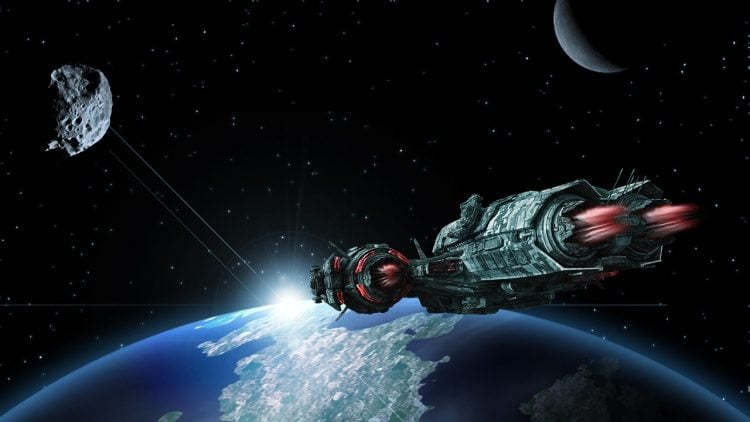
Let’s take a trip to twenty-six years ago in our Throwback Thursday time machine (ScienceFiction.com’s ongoing column dedicated to the great sci-fi of the past), and take a look at one of the quintessential science fiction short stories of the 1990s: “The Space Traders” by Derrick Bell.
Now, for some of you who have seen ‘Torchwood: Children of Earth,’ the plot of “The Space Traders” may seem somewhat familiar in that aliens come to the Earth asking a terrible price. In ‘Children of Earth,’ it’s unsurprisingly the children of Earth in exchange for the evil aliens leaving the Earth alone. In “The Space Traders”, the aliens want all the black people in the United States in exchange for technological advances and gold (remember, this was written in the 90s when balancing the Federal budget was a very hot button topic in politics).
Though ‘Children of Earth’ would be politically-charged (they begin debating if the impoverished should be the ones who lose their children), it does not hold a candle to its predecessor in showing society a mirror, and more pointedly, the United States a mirror when it comes to the relations between white America and its black counterparts.
The majority of the story revolves around the President and his white cabinet members rationalizing why it would be good to let the Space Traders kidnap the black population. There is one token black person there, an economics professor, whose sole purpose to make the deliberations over such a terrible choice seem more neutral. Even still, it’s clear how insanely inhumane the cabinet is while they argue that the economy needs it but they worry about the health costs of subsequent white guilt.
The short story is short, but it is very dense. It invites in conversation about religious institutions and how they are used to manipulate the political sphere. It talks about how other minorities trying to defend African Americans are immediately persecuted. It even touches on white liberals who are horrified by the talk of Trade, yet do little else than say “it can’t happen here.” Even twenty-six years later, it makes some astonishingly acute readings on our current political atmosphere. Unfortunately, it’s not because it’s prescient. It’s because politics haven’t changed since 1990, and the short story at least predicted that.
From the kidnapping of Africans centuries ago, and the scars that population still bear because of their loss of identity and then their oppression, “Space Traders” pointedly puts the blame on capitalism. After all, it was for capitalism that the slave trade became what it was (and still continues today), and in the story, it is to solve the problems of capitalism that the Americans are ready to send the black population away from their homes yet again.
In short, “The Space Traders” is not only excellent science fiction, but it should be obligatory reading for all political science, history, and civics classes.
